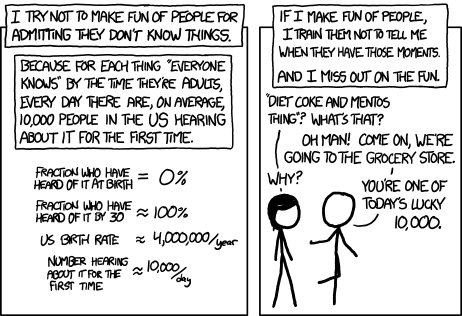DH is Teaching
24 Jul 2023 Posted in:digital humanities pedagogy DH is teaching.
End of talk. Can you imagine? A whole talk that is less than five words long.
That’s about the point when my cat bit me to wake me up. He’s been getting me up egregiously early lately, and I jotted down some notes about the dream as I waited for him to finish eating so I could go back to sleep.1 I was giving a conference talk, and Jennifer Guiliano had introduced me by giving me a bag of onions.2 There were shades of the time when a classmate told our Joyce professor he would be submitting a copy of Ulysses for the final exam.
DH is teaching.
What more need be said?
I’ve often said the phrase around the Lab but never thought to write it down publicly. Perhaps I thought such a thing would make me sound too much like a true believer. Or that it was so obvious a statement as to render it meaningless. Or that I was not the first to say such a thing.3 The past several years have seen increasing work on digital humanities pedagogy,4 but this post is not merely a commentary on the importance of teaching as a practice to the field and its development. To say DH is teaching is, rather, to point to the baggy, messy nature of the field and what it means to talk about it to an audience.
Whenever I give a talk on digital humanities, I assume a range of listeners in the room. The wildly interdisciplinary nature of DH means someone is always going to be at sea with some aspect of the material. If I present on topic modeling, some people will know the methods deeply, some will be less familiar, and some will just be there for the disciplinary material I am analyzing and have no sense of what the term means. I have never felt comfortable presenting on digital methods as though everyone in the room is in the know. Instead, I almost always try to present as though someone in the room is learning things for the first time. The Scholars’ Lab has a related XKCD comic on the Ten Thousand pinned to our wall:

The comic assumes that acts of teaching are explicit and intentional moments of pedagogy, but I’ve always found digital humanities to be characterized, instead, by ten thousand small and quiet acts of teaching and learning. It’s such a baggy field – I’ve never felt able to assume there was a shared body of knowledge among the people in and around it. There is always someone on the periphery of the big tent, always someone coming through the flaps for the first time. Think of the students and early-career scholars learning these methods for the first time. Or the digital humanist experienced in one area but attending a talk more outside their wheelhouse. It’s impossible for any one person to know everything. Any conversation about digital humanities necessarily is an act of teaching and learning for someone, whether the teacher recognizes it or not. Whether or not you’re in the classroom.
What are you teaching? To whom? What kind of student evals would you get?
The cat has finished, so that’s as good a sign as any to go back to sleep and see what other blog posts visit me in dreams.
-
Perhaps a sign that my subconscious would really like to stop posting once a week? ↩
-
What can I say–dreams are weird. ↩
-
Definitely ping me if you or someone else has done so! Would love to credit and have someone to cite about it. ↩
-
See Digital Pedagogy in the Humanities and the (at time of this writing) forthcoming What We Teach When We Teach DH. ↩